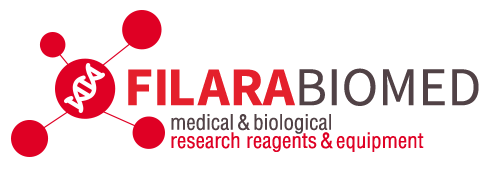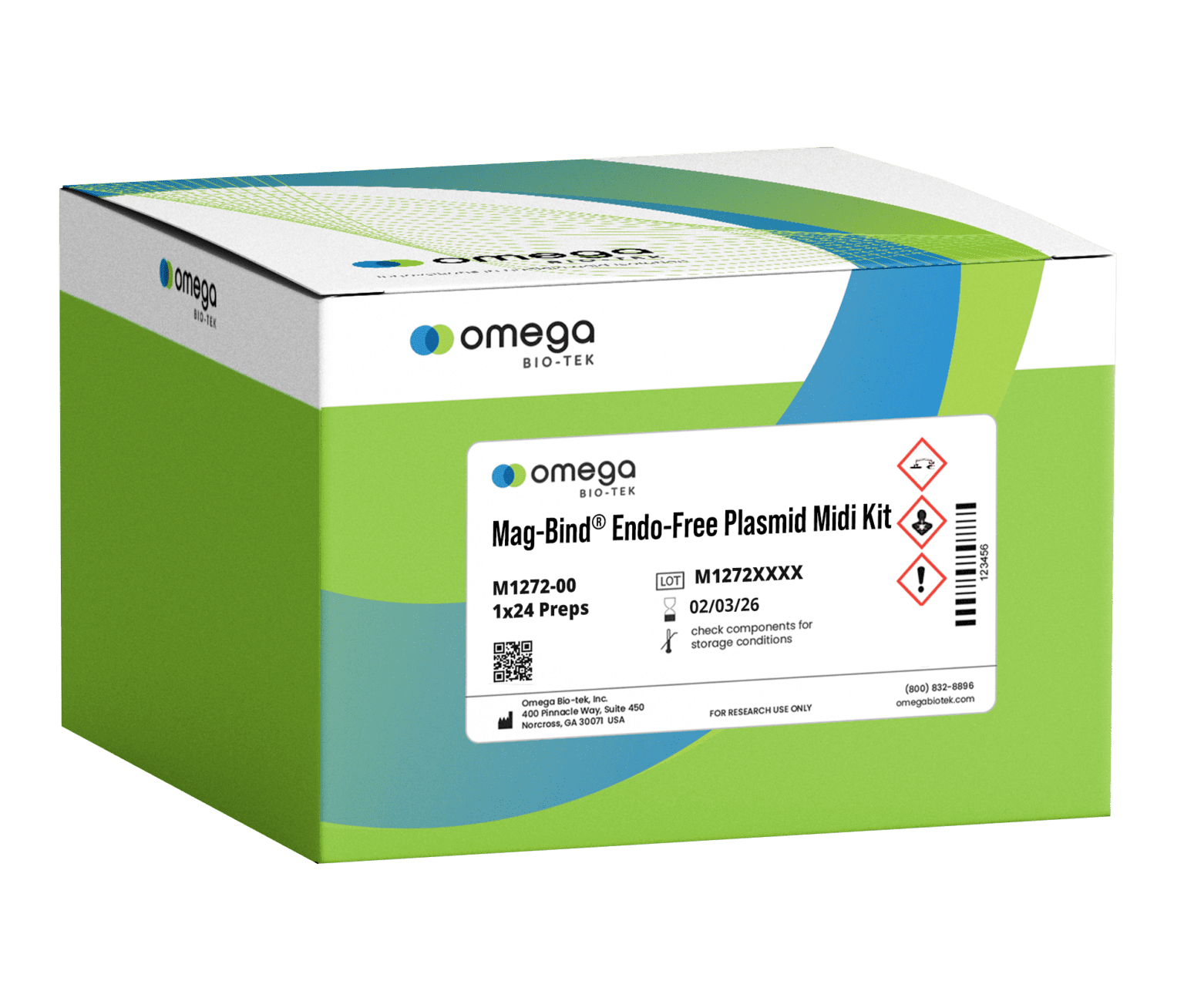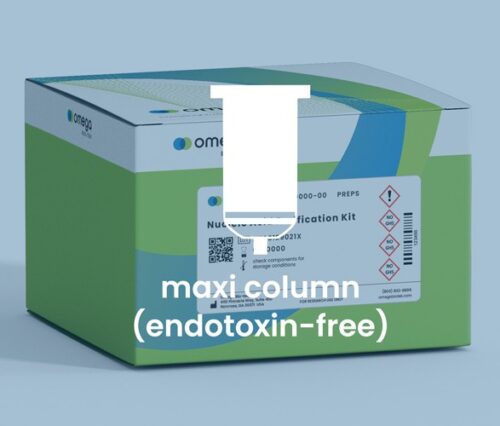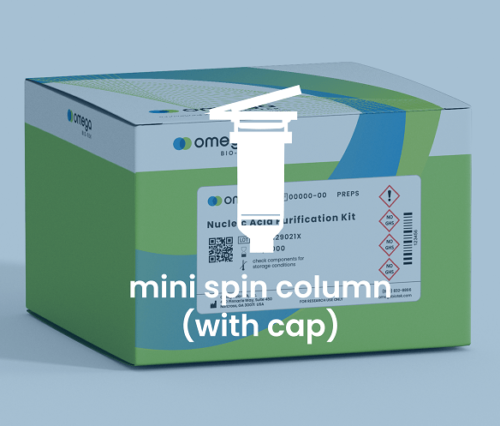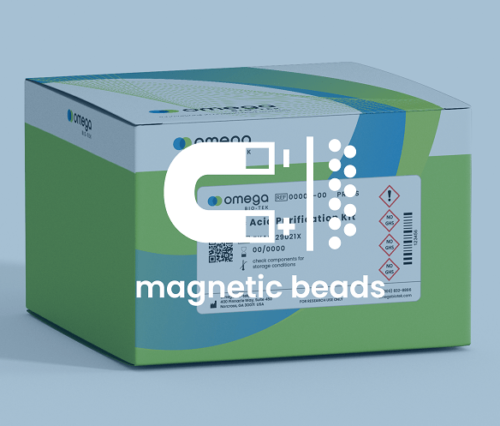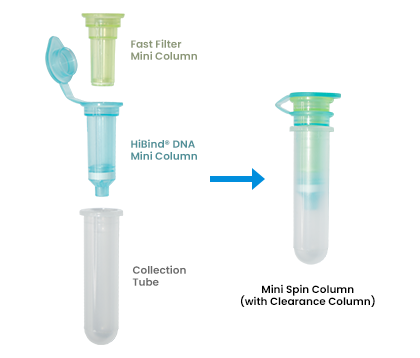Description
Ready-to-implement automated purification solution
All Mag-Bind® kits can be automated on most programmable robotic platforms, liquid handlers or magnetic processors. Learn more.
Off-the-shelf product doesn’t suit your needs? We’ll work with you to develop a customized product. Learn more.
Dedicated applications support will consult with you to develop and implement an automated solution that fits your specifications. Learn more.
The Mag-Bind® Endo-free Plasmid Midi Kit is designed to deliver large scale purification of high-quality plasmid DNA with endotoxins levels <0.1 EU/µg for use in eukaryotic transfections and other sensitive in vitro applications.
The Kit follows magnetic bead-based technology to purify plasmid DNA from up to 50 mL bacterial culture in LB or up to 10 mL bacterial culture in TB or other suitable growth medium. The Mag-Bind® Endo-free Plasmid DNA Kit can be processed either manually or automated on most open-ended liquid handling platforms as well as magnetic processors. Yields may vary depending on the copy number of the plasmid, E. coli strain used, culture media, and condition of growth.
The Mag-Bind® Endo-free Plasmid Midi Kit follows a modified alkaline lysis method forming a bacterial lysate. The lysate is then cleared using either Mag-Bind® Particles LC (sold separately) or Lysate Clearance Filter Syringe (sold separately) or centrifugation. The novel paramagnetic lysate clearance beads bind to cell debris and pull them down when magnetized. This eliminates the need for centrifugation or vacuum manifold for lysate clearance, making this suitable for high-throughput, automation workflows.
Post lysate clearance, plasmid DNA is then bound to Mag-Bind® Particles RQ through a specially formulated binding buffer and the Mag-Bind® particles are subjected to a wash routine to remove endotoxins, salt, and other contaminants. High-quality plasmid DNA is then eluted in Endo-free Water and is ready for use in a wide range of downstream applications such as transfection routine screening, restriction enzyme digestion, transformation, PCR, and DNA sequencing, etc.
